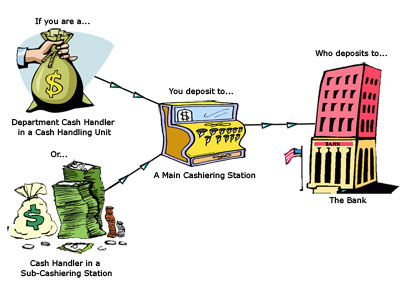Understanding Cashing and Its Importance
What is Cashing?
Cashing refers to the process of converting digital or mobile-based transactions into physical cash. This method is often used by individuals who have unused small payment limits on their mobile carrier bills and want to convert them into liquid funds. It usually involves purchasing gift certificates, digital vouchers, or content usage fees and then selling them to a verified cashing service in exchange for money.
The process is widely used in South Korea, where mobile carriers allow small payment transactions소액결제 현금화, enabling users to make purchases that can later be converted into cash through third-party services.
Why Do People Use Cashing Services?
There are several reasons why people turn to cashing services:
- Emergency cash needs – When users need urgent funds but do not have access to a credit card or loan.
- Utilizing small payment limits – Many people have unused small payment limits on their mobile carrier bills and prefer to use them efficiently.
- Convenience – The process is quick and easy, often completed within minutes.
- No credit check required – Unlike loans or credit advances, cashing does not require financial approval.
The Legality and Risks of Cashing Transactions
While cashing is widely used, there are some legal and financial concerns associated with it. In some regions, cashing out mobile payments may violate terms of service set by mobile carriers, leading to account restrictions or penalties.
Risks to consider include:
- Scams and fraud – Not all cashing services are legitimate, and some may take advantage of users.
- Hidden fees – Some services charge high transaction fees, reducing the final cash amount.
- Impact on credit – If a user fails to pay off their mobile bill after using small payment cashing, it could affect their credit history.
To ensure a safe transaction, users should carefully select reputable cashing services and understand the associated fees before proceeding.
Different Methods of Cashing
Using Gift Certificates for Cashing
One of the most common ways to convert small payment limits into cash is through gift certificate purchases. Users buy Culture Land, Happy Money, or Shinsegae gift certificates using their mobile payment service and then sell these certificates to an exchange platform or a buyer for cash.
This method is widely preferred because:
- Gift certificates hold stable value and can be easily converted.
- There are multiple platforms available for selling them.
- Transaction fees are relatively low, making it a cost-effective method.
Cashing Through Mobile Payment Services
Some third-party services allow users to directly cash out mobile payments without the need for gift certificates. These services process the transaction by purchasing a digital item or content usage fee and converting it into cash for a small commission.
Pros of this method:
- Faster processing time compared to selling gift certificates.
- Direct conversion to cash without needing to find buyers.
Cons of this method:
- Higher transaction fees compared to gift certificate cashing.
- Limited availability depending on the mobile carrier and service provider.
Alternative Cashing Routes and Their Benefits
Aside from the traditional gift certificate and mobile payment routes, some users explore other methods such as:
- Selling digital content or game items – Some online platforms allow users to trade digital goods for cash.
- Transferring payment credits – Certain services facilitate cashing by allowing users to transfer mobile payment credits to another user in exchange for cash.
Each method has its own advantages and risks, so users must evaluate the best route based on their needs and transaction fees.
Pros and Cons of Cashing
Pros
- Quick access to cash – Transactions are usually processed within minutes.
- No credit check required – Ideal for users who cannot access loans or credit advances.
- Multiple methods available – Gift certificates, direct cashing, and alternative routes offer flexibility.
- Convenient for mobile users – Anyone with an active mobile payment plan can use this method.
Cons
- Transaction fees apply – Service providers usually charge a commission, reducing the final cash amount.
- Risk of scams – Fraudulent vendors may take advantage of users.
- Not always legal – Some mobile carriers prohibit small payment cashing.
- May impact credit – Failure to pay off mobile bills could affect credit history.
Conclusion
Cashing methods provide a convenient way to convert small payment limits into liquid funds, making them useful for individuals in need of quick cash. Various routes, such as gift certificates and mobile payment services, offer flexibility in choosing the best option. However, users must be aware of transaction fees, security risks, and the potential impact on their financial standing. Selecting a trusted service provider and understanding the legal aspects of cashing are essential to ensure a smooth transaction and usage fees. By weighing the pros and cons, users can make informed decisions that align with their financial needs and goals.



































